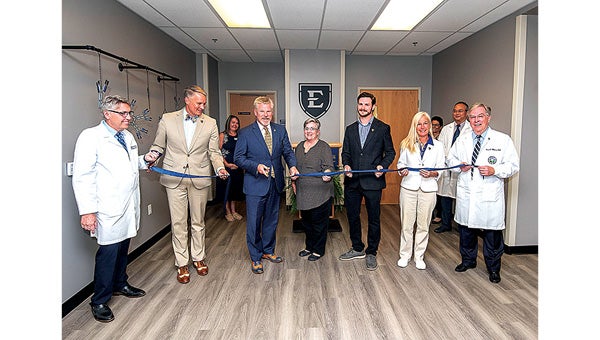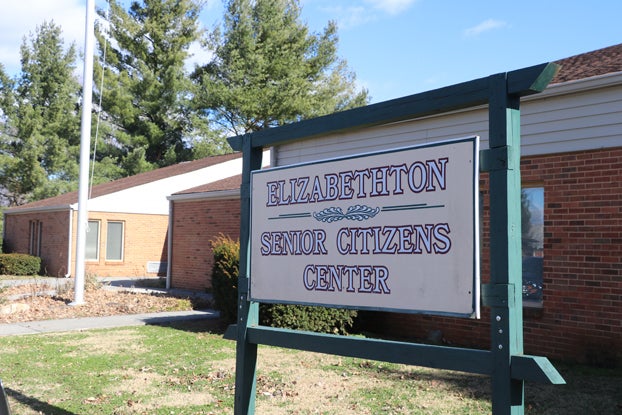ETSU celebrates ribbon cutting for CIDI Center
Published 10:31 am Thursday, September 15, 2022

- Contributed Photo
|
Getting your Trinity Audio player ready...
|
JOHNSON CITY — For the first time in its eight-year history, East Tennessee State University’s Center of Excellence in Inflammation, Infectious Disease and Immunity (CIIDI) has a physical presence to call its own.
Today, university officials celebrated the official ribbon cutting for the new space, located on the second floor of Building 6 on the James H. Quillen VA Medical Center at Mountain Home.
CIIDI officially moved into its new space in late 2020, and they have spent the past year renovating the area, adding state-of-the-art scientific equipment and preparing it to become a hub of research and education for CIIDI’s critical mass of researchers in inflammation, infectious disease and immunity.
“This 10,000 square feet facility provides vital infrastructure to support cutting-edge research,” said ETSU President Dr. Brian Noland, who spoke at the ribbon cutting.
It features state-of-the-art instrumentation, a human tissues biorepository, and specialized core facilities and laboratories, along with meeting and administrative spaces.
“Our dedicated space facilitates communication, collegiality and exchange of ideas, and provides opportunities to establish interprofessional and intraprofessional collaborations,” said Dr. David Williams, CIIDI co-director and Carroll H. Long Chair of Excellence at Quillen College of Medicine.
Prior to moving into the new space, CIIDI members were spread out across various labs on the VA campus. Over the past year and a half, they have been able to come together in the new space to expand their infrastructure through the development of the CIIIDI Human Tissue Biorepository to collect specimens and associated clinical data that can be utilized for human subject research. While most members work in offices, laboratories, and classrooms across campus, the new facility provides a centralized hub for collaboration.
“The biorepository significantly enhances our translational and clinical research, including COVID and long COVID studies in proteomics and neurology,” said Dr. Jonathan Moorman, CIIDI co-director and professor and division chief of Infectious, Inflammatory, and Immunologic Disease. “Our members also have active programs in cardiovascular disease, HIV, and sepsis, and a number of other studies in one of the ‘three I’s’: inflammation, infectious disease, and immunity.”
The center has added other new elements to its infrastructure, including acquisition of new research instrumentation and the Medicinal Chemistry and Drug Discovery core, which focuses on developing innovative immune therapies as well as the discovery of new and novel adjuvants for increasing vaccine effectiveness, and the creation of a dedicated Clinical Research Office.
Throughout the growth and changes that have occurred over the past year and a half, the research produced by CIIDI members continues to be the focus. Their research has gained attention in areas such as COVID-19 and post-acute sequelae of SARS-CoV-2, or “long COVID.”
In addition, some members are investigating how COVID infection impacts their scientific areas of emphasis, such as cardiovascular illness. Members have been awarded multiple COVID-related grants, and there have been a number of publications authored by CIIDI members. Over the past year, several members have conducted research on adjuvant and vaccine technology and also on the novel role of lactate in infectious disease and heart attack-induced cardiovascular dysfunction.
As they look toward the next year, CIIDI leaders are excited about resuming in-person educational learning opportunities that had been put on pause due to the pandemic. In addition, they are looking forward to hosting invited speakers who are nationally and internationally known in their respective fields.
All of this can now take place in their new, state-of-the-art space.
“The new CIIDI home makes it possible for us to better serve our members, the university community, and the research enterprise at ETSU,” said Moorman. “In addition, the new facility makes it possible for us to better serve our core missions of research and education.”



